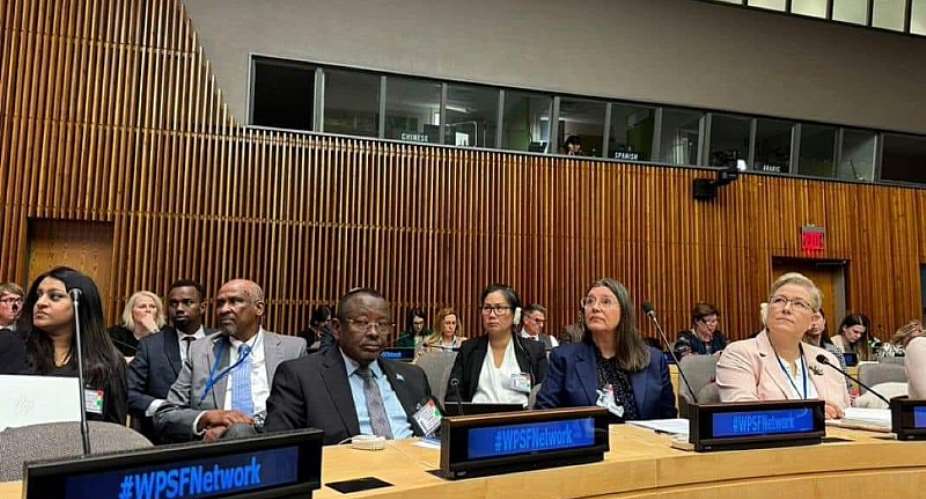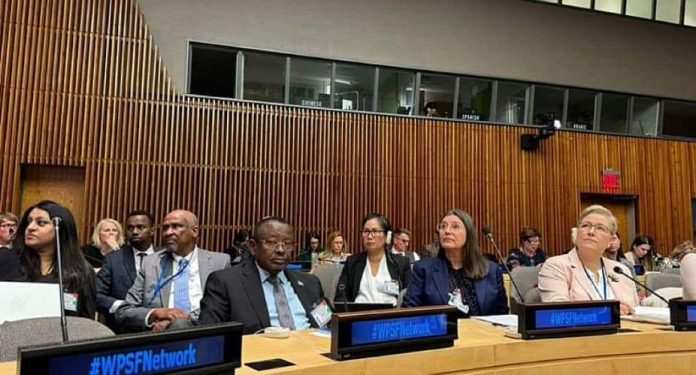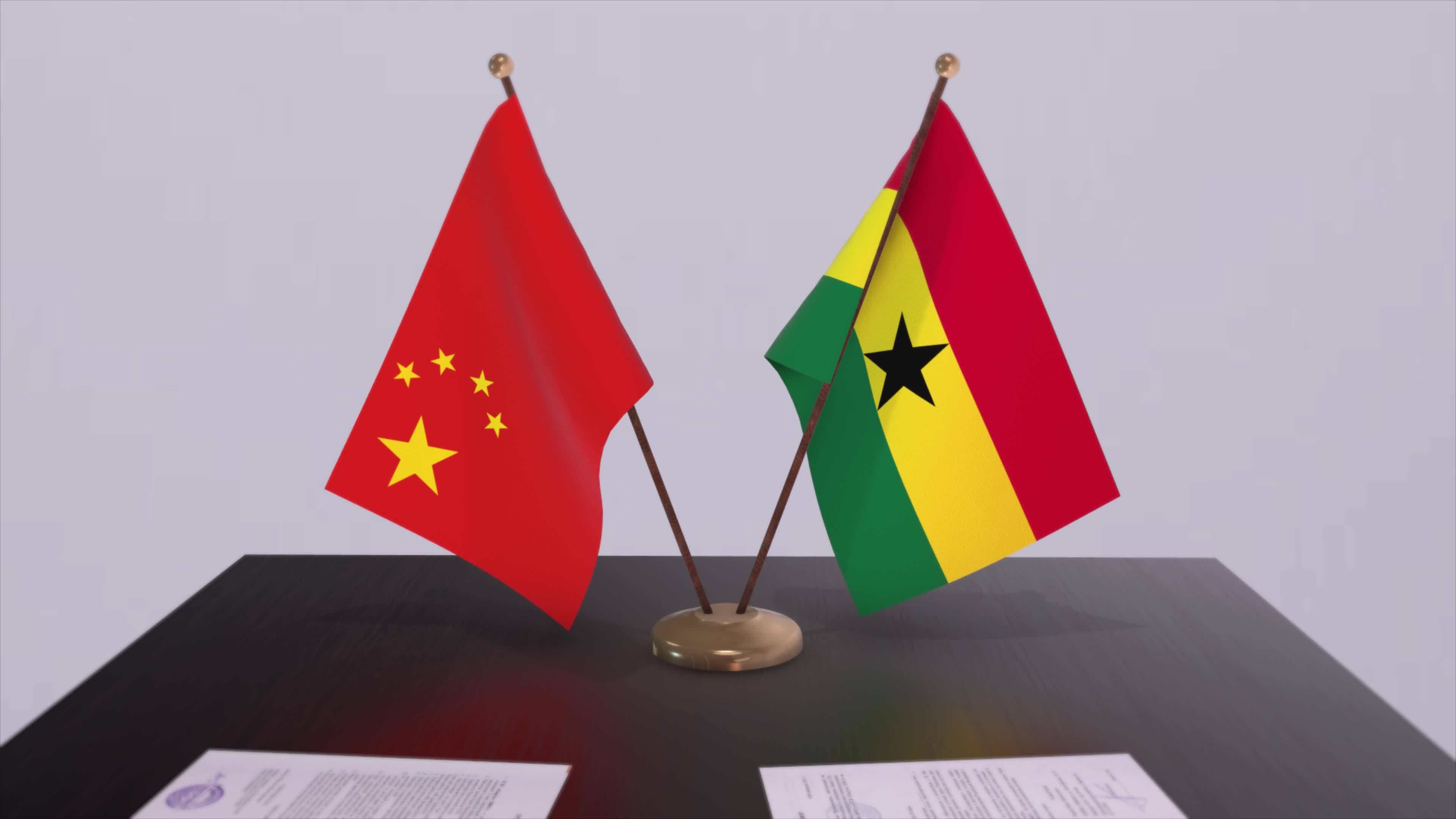
The image of an all-male Somali delegation at a recent Women, Peace, and Security Conference in New York struck me not only as ironic but as deeply disappointing. As someone who has witnessed the struggles of Somali women firsthand and shared their stories in my memoir, “Dreams From My Family: A Vision for Somalia’s Future”, I know how far-reaching the consequences of such exclusion can be. This delegation, meant to address the challenges faced by women in peacebuilding, unintentionally became a symbol of what Somali women confront daily: systemic discrimination and a persistent lack of representation in critical spaces.
Growing up, I saw Somali women face immense obstacles, whether in leadership, education, or even basic social participation. I remember my mother’s resilience, often working twice as hard to earn half the recognition of her male counterparts. I recall the stories of my aunts, who, despite being educated and capable, struggled to break into decision-making roles. Their stories, like those of countless other Somali women, became the bedrock of my memoir—a work aimed at advocating for broader women’s participation across all levels of Somali society.
In Somalia, women have always been vital contributors to society. Yet, they are frequently relegated to the background, their voices ignored in spaces where decisions that affect their lives are made. This marginalization is most visible in politics and peace processes, where women’s involvement remains minimal. Despite the country’s ongoing efforts to meet the UN’s 30% gender quota in parliamentary representation, real change has been slow, uneven, and often symbolic rather than substantive. The absence of women in a conference designed to discuss their roles in peacebuilding starkly illustrates the gap between policy and practice.
The conference’s theme—Women, Peace, and Security—aimed to amplify women’s voices and roles in peacebuilding. This international platform presented an opportunity for Somalia to showcase its commitment to gender equality, a chance to make tangible progress by empowering women leaders to represent the nation. However, the decision to send an all-male delegation not only undermined the conference’s objectives but also highlighted the systemic barriers Somali women face in international decision-making processes. The delegation, whether intended or not, became a symbol of exclusion rather than empowerment.
According to data from the UN Development Programme, only 24% of decision-making roles in Somalia are held by women, despite women comprising nearly half of the population. Studies have also shown that countries with greater gender parity in decision-making are more likely to experience sustainable peace and development. Somalia’s failure to align its actions with its stated commitments to gender equality not only hinders national progress but also weakens its standing on the global stage.
Globally, many nations have made significant strides toward including women in peace processes and governance. Rwanda, for example, is often cited as a model, with women holding more than 60% of parliamentary seats. The Rwandan government recognized early on that women’s participation is not just a matter of rights but a critical component of lasting peace and reconciliation. Similarly, Ethiopia has made remarkable progress by appointing women to half of its ministerial positions, acknowledging that women’s inclusion drives comprehensive development.
In contrast, Somalia remains behind, with token gestures often replacing meaningful representation. The recent conference episode reflects a broader issue where women’s roles are acknowledged in rhetoric but neglected in practice. While there have been efforts to elevate women to decision-making positions, these efforts often face cultural resistance, lack of resources, and insufficient political will.
The all-male delegation at a Women’s Peace Conference should serve as a wake-up call, prompting Somalia to reassess its commitment to gender equality. The road to progress requires more than symbolic gestures or adherence to quotas; it demands systemic changes that break cultural barriers and foster genuine inclusivity. Women must be involved in peace processes not as token representatives but as critical stakeholders whose insights and contributions are necessary for sustainable solutions.
In “Dreams From My Family: A Vision For Somalia’s Future”, I emphasize the need for broader women’s participation as essential not only for gender equality but for the nation’s overall development. When women are included in peacebuilding and governance, societies are more likely to experience stability, resilience, and growth. Somalia cannot afford to leave its women behind; their voices, ideas, and leadership are crucial to addressing the complex challenges the nation faces, from conflict resolution to economic development.
The episode of the all-male delegation at a Women’s Peace Conference is a microcosm of the broader challenges Somali women face. It symbolizes the ongoing battle for representation, respect, and recognition. But it should also serve as a catalyst for change. The narrative must shift from one of symbolic inclusion to one of meaningful participation. Somali leaders must move beyond rhetoric and take concrete steps to empower women in all spheres of society, from local councils to international conferences. Only then can Somalia truly claim to be committed to peace, progress, and equality for all its citizens




